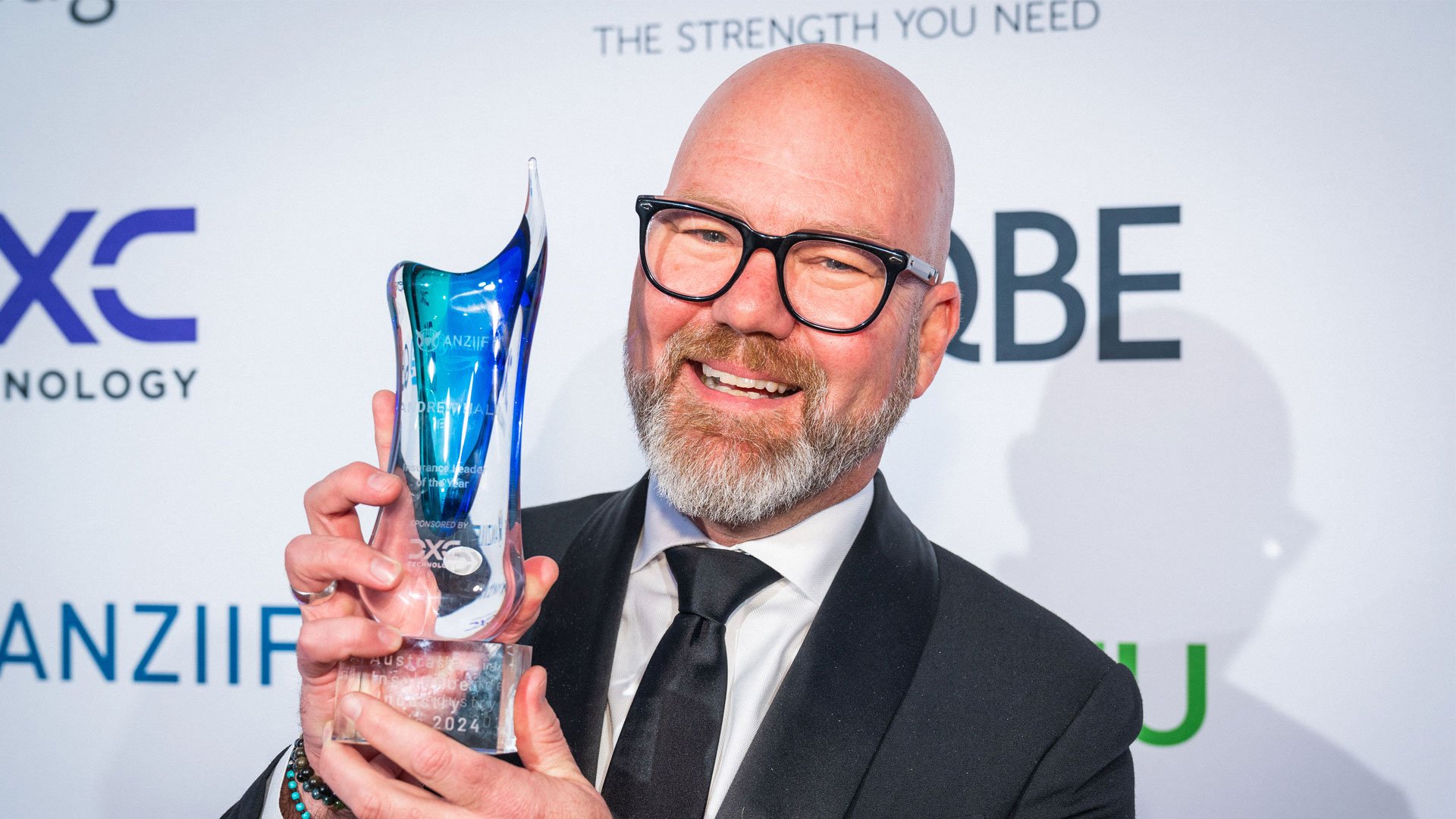
Andrew Hall, Chief Executive Officer of the Insurance Council of Australia says his Insurance Leader of the Year Award is not just a personal achievement, but more a recognition of the whole ICA team’s commitment to making the voice of the insurance industry heard in the broader community.
While the accolade feels humbling, it’s important that the role of collective insurance advocacy is acknowledged and celebrated.
“It’s immensely important that the insurance agenda is at the table during important discussions and that's what we've strived to achieve,” Hall says of the ANZIIF award, presented Thursday 22 August at a gala event in Sydney.
“The insurance sector requires a strong voice because it's such an important part of the economy,” he says.
A Journey of Advocacy
Hall's career began in journalism and politics before he transitioned to the private sector, holding significant roles in corporate affairs at Woolworths and the Commonwealth Bank.
Since joining the ICA, Hall has been instrumental in navigating the complexities of the insurance landscape, particularly during challenging times such as the COVID-19 pandemic.
His leadership was put to the test early in his tenure when debates erupted over whether the COVID-19 pandemic triggered business interruption claims for impacted insureds.
Under Hall's guidance, the ICA continues to take proactive steps to address pressing industry issues, including climate change, natural disaster resilience, and consumer protection.
His unwavering belief in the importance of insurance in promoting economic stability has made him a key figure in shaping the industry's future.
“We've got to work closely with industry stakeholders to find common ground,” Hall says. “Insurance is highly competitive and individual ICA members are working very hard to improve their own businesses and get ahead.”
Fixing the hard problems
Hall asserts that the industry understands that it is only ever as strong as its weakest link. “I believe the sector is prepared to work on fixing some of the hard problems,” Hall says.
As an example, he points to the pressing issue of insurance affordability, particularly for Australians in high-risk areas. “The impact of inflation and structural adjustments in markets like home and motor insurance have combined to drive premiums up,” he says.
“Where there's a specific parallel risk around flood, we need to have discussions with government about what we can do to provide cover. The government is very focused on this, and insurers are working closely with the government.”
One such initiative is the Hazards Insurance Partnership which is increasingly facilitating shared data between insurers and government to inform investment for disaster mitigation.
Meanwhile, Hall says the industry is very focused on improving customer centricity and building consumer trust.
He acknowledges that winning trust can be hard when consumers are experiencing major catastrophic events, supply chain disruption and third-party suppliers let them down.
“I do see lots of good examples of post-catastrophe event work in the community,” he says.
“I’ve talked to a lot of claimants who’ve had a really favourable experience. But we've still got to get better at working out what variation of the process results in the difficult to resolve, long-tail claims that can persist.”
Keeping consumers informed
For Hall, communication is key, and he emphasises the importance of keeping consumers informed throughout the claims process.
“The quality of our interactions with customers is critical,” he asserts. “It's about how you keep customers feeling empowered wherever they may be in the claims management journey.”
While it can be easier said than done, particularly in a very large and complex operation, Hall says focusing sharply on the customer experience and understanding how consumers interact with technology will be the differentiator for those organisations that can quickly bring relevant opportunities to market.
Like many, he identifies data and technology as critical components shaping the future, noting the increasing use of data in underwriting and performance tracking that has been slowly revolutionising the way insurers operate.
"Data will be key to how businesses succeed in this space," he says. “Technology will also change insurance product design and delivery. We have to make sure that we continue to listen to all voices: consumers, government, and others on how that's rolling out.”
Regulatory reform
As a player integral to driving regulatory change, Hall advises that there's no immediate relief on the horizon.
“A wide variety of issues can come into play to affect the appetite for regulatory reform,” he says.
“If anything, regulation will continue to be refined and honed. For us to get relief, we must make a very strong case using the data and examples that underscore our case.”
Recognised for his collaborative, leadership style, Hall says the award is a testament to the collective efforts of the ICA team and the broader insurance community. "This recognition is not just for me; it reflects the hard work and dedication of my entire team," he says.
As ICA chief executive, Hall says he values trust and empowerment within a team so that it can deliver.
“One person can never do it all and nor should they,” he says. “The collective effort of a team is what's critically important.”
His vision for the future of the insurance industry is one of resilience and sustainability. He remains focused on building consumer trust and ensuring that insurance remains accessible and affordable for all Australians.

Comments
Remove Comment
Are you sure you want to delete your comment?
This cannot be undone.